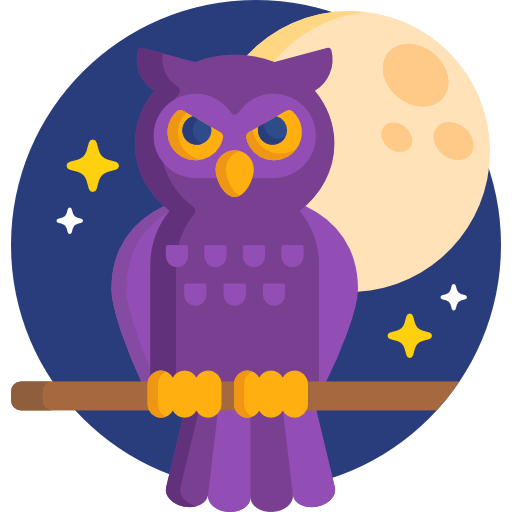Owls can drink water, but they mostly get their water needs met by the animals they eat.
During metabolism, the hydrogen contained in the animals’ fat gets oxidized, yielding around one gram of water for every gram of fat. Therefore, it is unlikely that owls will have to gather water separately, and they rarely drink water. However, in hotter climates and during the summer, owls may visit slightly larger, deeper birdbaths to drink or bathe. When drinking, owls often swish their heads around to remove debris or bugs. It is important to recognize that owls rarely drink and gain virtually all the fluid they require from their food. Therefore, when an owl has not fed for more than a few days, it becomes susceptible to dehydration, which can rapidly lead to organ failure and death. If an owl needs to be re-hydrated, liquids can be administered separately as a supplement to avoid organ failure, which is a common cause of death in owls that have not eaten.
How Does The Metabolism Of Animals’ Fat Contribute To The Water Needs Of Owls?
Owls get most of their water needs met by the animals they eat.
During metabolism, the hydrogen contained in the animals’ fat gets oxidized, yielding around one gram of water for every gram of fat.
This means that when owls metabolize the fat of the animals they eat, they are able to obtain water from it.
This is similar to how rodents and some groups of desert birds are able to convert energy sources into water.
For example, kangaroo rats are able to obtain 90% of their water balance from metabolic water derived from consumed seeds.
It is important to note that while owls can drink, they mostly rely on the water they obtain from the animals they eat.
This is because they spend much of their active time hunting for food and may not have easy access to water sources.
Additionally, owls cannot chew their food, so they swallow it whole, which means they do not have the opportunity to drink water while eating.
Under What Circumstances Do Owls Visit Larger, Deeper Birdbaths To Drink Or Bathe?
Owls may visit larger, deeper birdbaths to drink or bathe in hotter climates and during the summer.
However, great horned owls, which are more strictly nocturnal than other owl species, also enjoy birdbaths.
In general, birdbaths that are too deep may not be suitable for smaller birds to bathe safely, so stones placed in the bath may allow them to bathe comfortably.
To attract birds to a birdbath, it is recommended to keep it shallow and low to the ground, with a gentle slope so birds can wade into the water.
Adding rocks or sand to the bottom in the middle can also give birds something to stand on as they are cleaning themselves.
Birds use birdbaths to remove tiny parasites from their feathers and keep them clean, and they will also drink from them.
It is important to place the birdbath in the shade if possible, and to keep cats away from the area, as birds can be vulnerable to predators while bathing.
Eastern Screech-Owls also use birdbaths and will visit them to drink and bathe.
What Are The Consequences For An Owl If It Becomes Dehydrated Due To Lack Of Food?
Dehydration can have serious consequences for an owl that has not fed for more than a few days.
Owls rarely drink and gain virtually all the fluid they require from their food.
Therefore, if an owl becomes dehydrated due to lack of food, it can rapidly lead to organ failure and death.
Signs of dehydration in birds include sunken or dull eyes, wrinkled skin around the eyes, sticky or dried-out mucous membranes inside the mouth, and decreased energy levels.
To avoid organ failure, it is important to administer fluids as soon as possible to a dehydrated owl.
Liquids can help stimulate swallowing and increase fluid intake, and 5-10 ml per day for one or two days may be sufficient as long as the bird is eating.
However, if the bird regurgitates food, then 5-10 ml of liquids can be administered three times a day.
It is important to note that dehydrated birds are at risk of developing crop infections, and emaciated birds must be hydrated well with any nutrition they are given.
